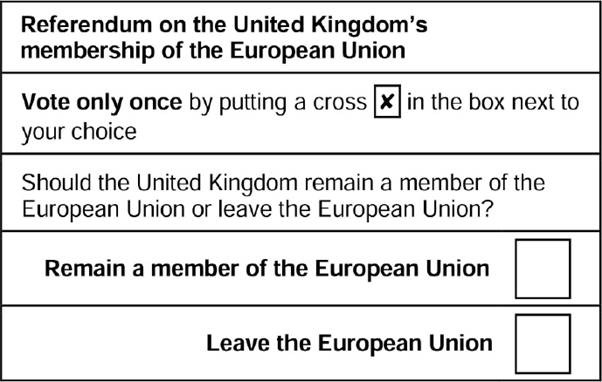The catastrophic failure of Brexit – or at least a muddlesome mess at the end of the Brexit process – might give pause for people not just in the UK but across the Western world to consider the risks of populist politics, writes Geoff Kitney.
There may yet be positive consequences for democracy from Britain’s Brexit referendum.
But this is not good news for Brexiters because to be positive for democracy Brexit must prove to be a failure.
Looked at in its wider implications, beyond the immediate arguments for and against the UK’s membership of the European Union, Brexit is a classic test case of how to deal with the big issues confronting the post-war global, liberal-democratic order.
At its core, Brexit is a real-life experiment in populist democracy.
The decision on whether Britain would be better off continuing to be a member of the EU or leaving it was handed by the nation’s political leaders to the nation’s voters to make a direct choice.

All the complexities of such a choice – the massively complicated challenge of weighing up all the pluses and minuses of Britain’s deep engagement with the European Union – were reduced to a single, simple question on which voters were asked to decide the nation’s future.
Should we stay in or should we leave?
For a large proportion of the population who accepted the offer to cast a vote on this question, the choice was made on little more than gut feelings, based on a superficial understanding of the pros and cons of membership of the EU.
The people whose job it was to dig into the complexities of such a decision, to painstakingly sift through the evidence about what are the actual costs and benefits of being a member of the EU decided to abrogate their responsibility.
While they claimed that the issues would be explained in the referendum campaign so that voters could make an informed choice, this was an absurdly false claim.
The referendum campaign was like any other political campaign – shallow, partisan, dishonest and incapable of providing anything other than a very superficial understanding of the complex issues at stake.
The extraordinary complexity of the Brexit process and its impact on the British economy – and therefore, ultimately, the people – is now about to become alarmingly clear.
There is deep suspicion that the contents of the impact assessments, which have been available to the government for some time, have been kept secret because they paint an extremely alarming picture of the prospects for post-Brexit Britain.
The vote by the House of Commons on November 1 compelling the May government to release 58 sectoral impact statements which the government has been sitting on for some time should, for the first time, lift the lid on the official UK assessment of the consequences of Brexit.
The government insists that some of the contents of the impact statements – covering most of the British economy – will still have to remain secret to protect its negotiating position in the talks with the EU, due to resume on November 9.
But there is deep suspicion that the contents of the impact assessments, which have been available to the government for some time, have been kept secret because they paint an extremely alarming picture of the prospects for post-Brexit Britain.
The government is now under intense pressure to be as open as possible about these impacts so that the public can finally get a clear picture of what the consequences of leaving the EU will be for the UK – information which should have been available before the voters were forced to choose.
Former Conservative Prime Minister David Cameron acted with historic cynicism, handing to voters a decision which should have been his and his Government’s because his party was incapable of bridging the divide between its pro and anti EU tribes.
And yet Cameron did what many in other western democracies are increasingly advocating – he put big decisions in the hands of the people.
It is the sort of argument that is gaining favour in the face of what seems to be a period of historically poor political leadership across the western world.
Public disillusionment with the historically dominant political parties and their leaders in the democratic west is at record low levels.
It is no coincidence that this rise in disillusionment has been occurring as the business of government and the policy choices that political leaders have to make have become vastly more complex, complexity compounded by the breaking down of national borders due to globalisation and mass movements of people caused by conflict and social and economic breakdown.
It is getting harder for ordinary people to process all the information coming at them, particularly as the methods of delivering information are changing so quickly and shifting from traditional media to social media.
Simple statements and black-and-white arguments are much more tempting to agree with than complex explanations of problems to which there are no clear-cut answers but on which judgments have to be made by policy makers.
A painful lesson for the voters of the UK of the silliness of trying to resolve complex problems with simple slogans based on opinion polls and blind prejudice increasingly appears likely to be the consequence of the Brexit process
Brexit critic and former UK Minister for Europe, Denis MacShane, in an article just published on the on-line forum Social Europe, warns that this is a tailor-made opportunity for what he calls “Pop-Nat” politics – populist nationalism.
‘The move to on-line and social media as the new means of political communication encourages Pop-Nat politics, as does the new generation of television and radio political interrogators who have exchanged a mission to explain for a mission to treat all full-time, mainstream politicians – especially those who actually govern – as liars and cheats corrupted by ambition and limitless desire for power,” MacShane says.
According to him, the principal political mechanism of the Nat-Pops is to call for a referendum as the main way of deciding political questions. These, he says, become populist plebiscites that move decisions away from parliamentary deliberation to loud headlines in tabloid media.
He warns that Pop-Nats are seeking to entrench plebiscites as substitutes for traditional development of government based on historic compromises between competing ideological positions and real-time policies.
“The era of deliberative political discourse and mass party organisation that began with the European Enlightenment is now surely but slowly coming to an end – in Europe and elsewhere,” is MacShane’s gloomy conclusion.
There is plenty of evidence to support his gloom, in the way that populist authoritarians are gaining a foothold.
But this is where, perhaps, a catastrophic failure of Brexit – or at least a muddlesome mess at the end of the Brexit process – might give pause for people not just in the UK but across the Western world to consider the risks of populist politics.
A painful lesson for the voters of the UK of the silliness of trying to resolve complex problems with simple slogans based on opinion polls and blind prejudice increasingly appears likely to be the consequence of the Brexit process.
Some will argue that, before it is too late, there should be another referendum, this time with a better informed public. That would be the wrong response. The right response would be for a responsible government to accept the responsibility for making a final decision on whether or not to complete the process of withdrawal.
But a return to representative democracy will require clear-sighted, trusted new political leaders with the oratorical skills to expose the shallowness of the Nat-Pops and the dangers of following them.
But where is Britain’s equivalent of Emmanuel Macron? Or Germany’s? Or Italy’s? And what if French President Emmanuel Macron fizzes out to mediocrity and disappointment?
Without such leadership, the Brexit train will continue careering toward what appears now to be inevitable disaster. The risk would then be that Brexit failure would simply add fuel to the fire of popular disillusionment. Then the sort of future that Denis MacShane is pessimistically expecting will become more likely.

Headline image credit: Pepgooner/Shutterstock.com




